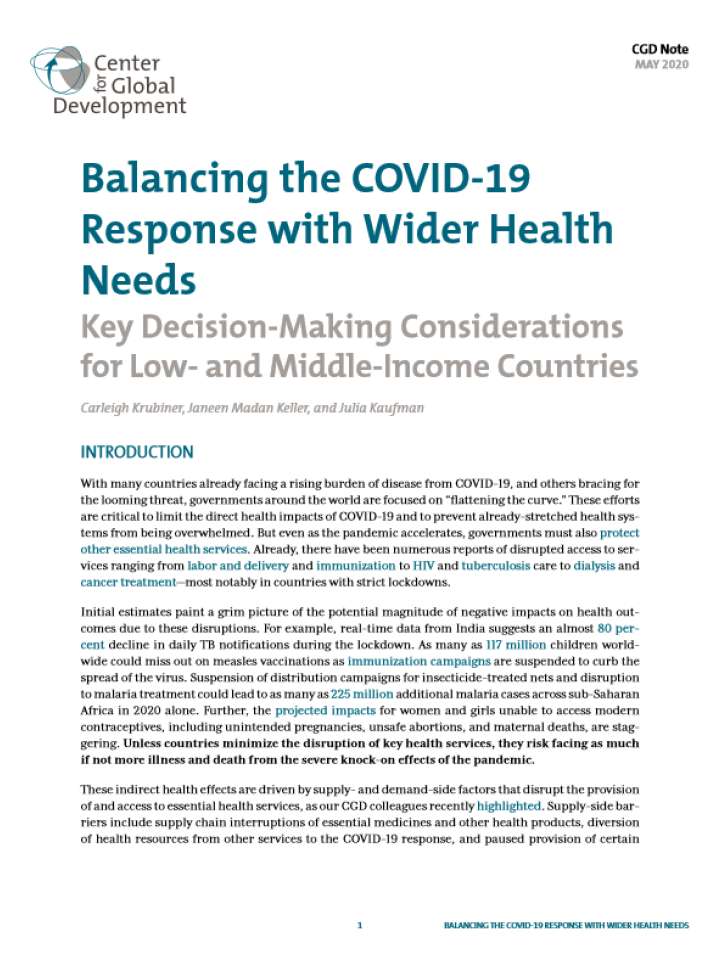Balancing the COVID-19 response with wider health needs: Key decision-making considerations for low- and middle-income countries
This note presents an initial scoping of select trade-offs that low- and middle-income countries (LMIC) decisionmakers and global health partners must balance across the wider spectrum of health needs as they mount a response to coronavirus disease 2019 (COVID-19). With a focus on the subset of impacts related to delivering routine healthcare, it provides examples across types of services and population groups that might be most vulnerable to the indirect effects of the pandemic and drills down on specific aspects for assessing these adverse impacts.
It then highlights possible strategies for mitigation, drawing on past epidemics while noting the need to tailor approaches to LMIC settings and connect to funding sources. The authors argue that:
- There has been wide recognition of the value of enabling access to longer courses of medications and multi-month refills, particularly among Human immunodeficiency virus (HIV) and Tuberculosis (TB) programs;
- In the context of COVID-19, the use of community health workers, health extension workers, and other technologies that facilitate home-based care present important opportunities to continue providing services outside healthcare facilities;
- Various technical guidance pieces have highlighted the role of dedicated clinic spaces for COVID-19 patients to reduce exposure risks among already vulnerable patient groups and help allay fears about seeking needed services during this crisis.
The paper concludes by underscoring the need for further research and enhanced evidence to guide response decisions that are attentive to the net health impacts over time.
Explore further
